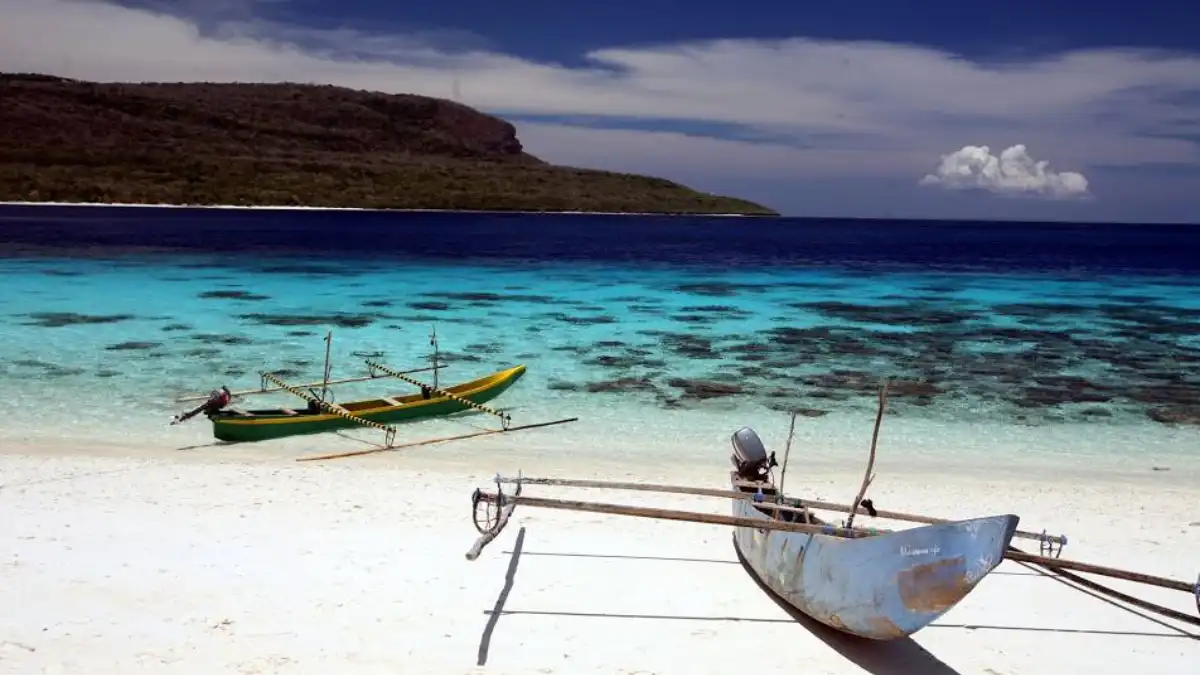Singapore has pledged to deepen its support for Timor-Leste as the young nation edges closer to full membership in the Association of Southeast Asian Nations (Asean). On July 14, 2025, Prime Minister Lawrence Wong unveiled the enhanced Singapore-Timor-Leste Asean Readiness Support (eStars) package, a tailored initiative aimed at bolstering government capacity and economic integration for Timor-Leste, during an official luncheon for visiting Timor-Leste Prime Minister Xanana Gusmao at the Pan Pacific Hotel in Singapore.
A Milestone in Regional Integration
The announcement marks a significant step in Timor-Leste’s long journey toward Asean membership, a process that began with a formal application in 2011 and received in-principle endorsement in May 2025. With full accession expected to be formalized at the 47th Asean Summit in October 2025, Singapore’s commitment underscores its role as a key partner in supporting the region’s youngest nation, which gained independence in 2002 after a turbulent history of foreign occupation and a UN-sponsored referendum in 1999.
The eStars package, running from July 2025 to December 2028, builds on the original Stars initiative launched in 2022. It offers expanded access to Asean-related training courses, expertise, and leadership development programs tailored to Timor-Leste’s national priorities. PM Wong emphasized the importance of this milestone, addressing Mr. Gusmao directly: “Timor-Leste’s upcoming accession to Asean is a significant milestone, both for your country and for Asean. Singapore looks forward to welcoming you warmly to the Asean family. And we will continue to stand with you on this journey.”
Timor-Leste, with a population of 1.3 million, faces unique challenges as it integrates into a regional bloc known for its economic and political diversity. The eStars package is designed to help the nation meet the stringent requirements of key Asean economic agreements, ensuring a smoother transition into the grouping’s frameworks.
Historical Ties and Solidarity
The relationship between Singapore and Timor-Leste is rooted in a shared history of solidarity. PM Wong highlighted Mr. Gusmao’s longstanding ties with Singapore, recalling his contributions to Timor-Leste’s independence struggle and nation-building efforts. “We remember well your many contributions to Timor-Leste’s journey – fighting for independence, unifying the country, and guiding your people through the early years of nation-building” he said during the luncheon.
Singapore’s support predates Timor-Leste’s independence. In 1999, the Republic was among the first to join an Australian-led multinational peacekeeping mission following the violence that marred the referendum for independence from Indonesian rule. Over the subsequent decades, more than a thousand Singaporean personnel have worked alongside Timorese communities, providing humanitarian assistance, building institutions, and supporting the nation’s transition to peace and stability, as noted by PM Wong.
Bilateral ties have since strengthened, with Singapore establishing an embassy in Dili, Timor-Leste’s capital, in 2024—a move PM Wong described as a reflection of the Republic’s commitment to deeper engagement. Economic connections are also growing, with Singaporean companies exploring opportunities in hospitality, real estate, and other sectors. Additionally, direct flights between the two countries have resumed, complemented by a mutual visa waiver agreement implemented in 2024, facilitating greater people-to-people exchanges.
Capacity Building as a Cornerstone
A key pillar of Singapore’s support lies in capacity building, a focus that has been central to its engagement with Timor-Leste for over two decades. Since 2002, more than 1,100 Timorese officials have participated in courses under the Singapore Cooperation Programme (SCP), a flagship initiative established in 1992 to provide technical assistance to developing nations. These courses cover a wide range of areas, from public administration to language and communications skills, equipping Timorese civil servants with the tools needed to navigate complex governance challenges.
Mr. Gusmao expressed gratitude for this sustained support, particularly in preparing Timor-Leste for Asean membership. He highlighted the tangible impact of training provided to Timorese civil servants in areas such as negotiation and policy writing, describing it as a real difference that reflects cooperation measured not in words, but in actions.
During meetings with President Tharman Shanmugaratnam and PM Wong, Singaporean leaders reaffirmed their commitment to Timor-Leste’s development, welcoming more Timorese officials to participate in SCP initiatives. This ongoing collaboration is seen as vital as Timor-Leste navigates the complexities of regional integration and domestic governance.
Shared Values and Diversity
Beyond strategic and economic cooperation, the leaders of both nations emphasized the shared values that underpin their relationship. Mr. Gusmao noted that while Singapore and Timor-Leste have distinct cultures and histories, they share a common belief that their futures must be shaped by their people. He drew parallels between the multicultural fabric of both societies, praising Singapore’s harmonious coexistence of Chinese, Malay, Indian, and Eurasian communities as an inspiration. Similarly, he pointed to Timor-Leste’s strength in its indigenous roots, Portuguese legacy, and diverse languages and traditions.
“This diversity is not a weakness. It is a source of unity, a quiet strength that holds our societies together” Mr. Gusmao remarked, underscoring the potential for mutual learning and collaboration.
He also looked to Singapore’s development discipline and clarity of purpose as a model for nations not just in Southeast Asia, but globally. Acknowledging the challenges ahead as Timor-Leste moves toward full Asean membership, Mr. Gusmao stressed the importance of regional unity and solidarity in an increasingly unstable world.
Future Opportunities and Collaboration
Looking ahead, Mr. Gusmao identified several areas for deepening bilateral cooperation with Singapore, including tourism, education, infrastructure, and investment. He showcased Timor-Leste’s natural beauty—from its mountain ranges to tropical beaches teeming with marine biodiversity—as a draw for potential partnerships. Central to this vision is Timor-Leste’s Blue Economy strategy, which prioritizes sustainability in marine and coastal development.
“We welcome partnerships that align with that vision. Not just investment, but collaboration, knowledge-sharing, and mutual growth” Mr. Gusmao said, signaling an openness to innovative and sustainable economic ties with Singapore.
PM Wong reciprocated this forward-looking sentiment by thanking Mr. Gusmao and the Timor-Leste government for a symbolic gift of 60 sandalwood saplings to commemorate Singapore’s 60th year of independence in 2025. He described the saplings as a powerful emblem of the growing relationship between the two nations, both bilaterally and within the Asean framework.
“I assure you that Singapore will take good care of the saplings and make sure they grow into strong and sturdy trees; befitting of the enduring friendship between our two countries” PM Wong affirmed.
Regional Implications of Timor-Leste’s Accession
Timor-Leste’s impending accession to Asean is more than a national achievement; it carries significant implications for the regional bloc. As the 11th member, Timor-Leste will bring a unique perspective shaped by its history of resilience and its strategic location in Southeast Asia. However, integrating a nation with a nascent economy and governance structures into Asean’s complex frameworks poses challenges, including aligning with economic agreements and contributing to regional decision-making processes.
Singapore’s enhanced support through the eStars package is a proactive step to address these challenges, ensuring that Timor-Leste is not only welcomed into the Asean family but also equipped to thrive within it. Analysts suggest that Singapore’s role as a mentor could set a precedent for how established Asean members support newer entrants, potentially strengthening the bloc’s cohesion at a time when geopolitical tensions and economic uncertainties loom large in the region.
Moreover, Timor-Leste’s membership could enhance Asean’s focus on sustainability and inclusive growth, given the nation’s emphasis on its Blue Economy and community-driven development. Singapore, with its expertise in sustainable urban planning and economic diversification, is well-positioned to partner with Timor-Leste in these areas, fostering initiatives that benefit not just the two nations but the broader region.
A Partnership for the Future
As Timor-Leste prepares for its formal entry into Asean, Singapore’s renewed commitment through the eStars package and ongoing capacity-building programs signals a partnership built on mutual respect and shared aspirations. The symbolic gesture of sandalwood saplings encapsulates this relationship—one that is rooted in history but firmly oriented toward growth and collaboration in the years ahead.
With regional dynamics evolving rapidly, the solidarity between Singapore and Timor-Leste offers a glimpse of Asean’s potential to unite diverse nations under a common vision. As PM Wong noted, the journey ahead will not be without challenges, but Singapore’s pledge to stand with Timor-Leste reflects a belief in the transformative power of regional cooperation. How this partnership evolves could well shape the future of Asean itself.
















